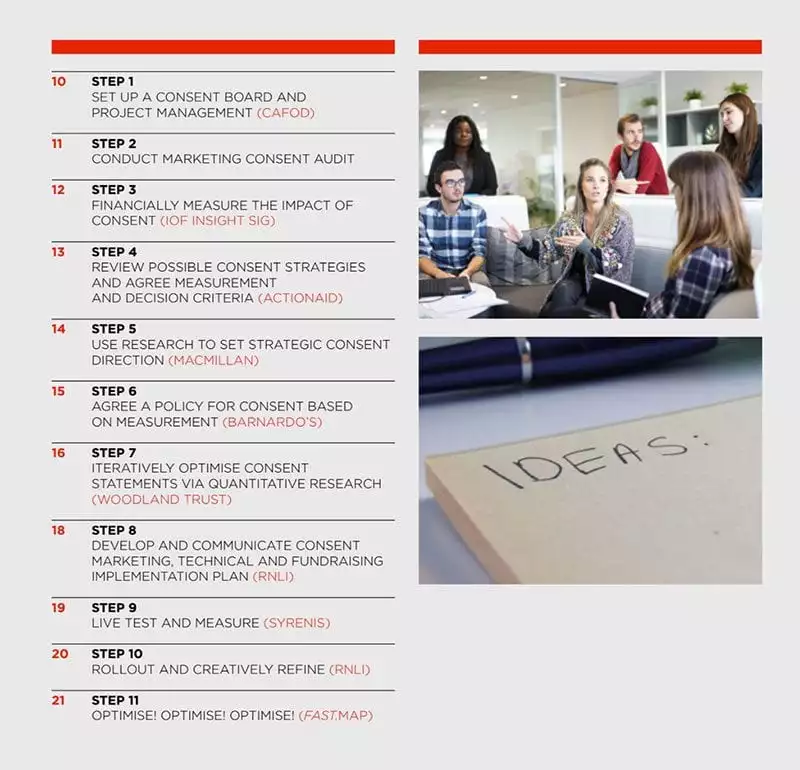11 steps to your consent and permissions
Fast.MAP have published a new guide for charity fundraisers and marketers with a forward from the Institute of Fundraising, offering a step-by-step approach to securing compliant consent and permissions.
The guide is published as charities take action to be compliant with the General Data Protection Regulation (GDPR), and following fines levied by the Information Commissioner’s Office (ICO) on 13 large charities for misuse of personal data.
David Cole, MD of fast.MAP, explains in the introduction to the 13-page guide: “‘Consent’ is now the new front line for marketing and the implications for every charity are far more profound than a change to a tick-box or a data structure.”
He added that the guide’s function is “to inspire, rather than be prescriptive, because each charity, when embracing consent, will plot their own path.”
The 11 proposed “common, sensible steps” are based on fast.MAP’s work with leading charities.
This guide briefly discusses each of these steps and each one is illustrated with comment and a case study of one particular charity approached the issue.
Three top tips
Cole added that the steps could be further distilled into three tips:
1. Start now
There will never be complete clarity on guidance and it’s a lot of work.
Advertisement
2. Involve everyone
The implications are broad. It’s important to get wide buy-in to change.
3. Reflect your core organisational values
Every charity has its unique relationship with its own donors. Directly copying another charity’s wording can undermine your appeal to donors.
He concluded that, in his view, “some charities are now leading the way with consent, compared to every other sector” because GDPR and a heightened focus on consent and myriad uses of data for fundraising and research has been debated and discussed at length.
Small charities?
fast.MAP make it clear that compliance is an issue even for small charities. At the beginning of the guide there is a section addressing the question – “what if I’m a smaller charity – does this still apply to us?”
Cole answers: “all of the steps outlined in this guide are still applicable to you, but might be done on a different scale, or to a tighter budget, but is still deserving of the time needed.”
11 tips
The 11 tips are not surprising to many fundraisers, but the detail on how to implement them across an organisation are the challenge. The analysis and comment from charities who have already worked on that issue are therefore a valuable guide.
The contributors for the sections include:
- Nick Mason, Chair, IOF Insight SIG
- Kelly Maklowicz, Head of Individual Marketing, Macmillan Cancer Support
- Nicky Watson, CEO, Syrenis
Julia Porter, DMA Board Member and Chair of fast.MAP’s Advisory Board, also contributes to the
Dan Fluskey, Director of Policy at the Institute of Fundraising, is a contributor to the guide. He notes that each charity will need to approach consent and data permissions in its own way to meet its own needs.
He writes: “Whatever strategy and approach that you take for your direct marketing, make sure that you know the rules. The Data Protection Act, the Privacy and Electronic Communications Regulations, and the forthcoming General Data Protection Regulation (which comes into effect in May 2018) all set out principles and requirements about how personal data can be processed.”
Free copy for UK Fundraising readers
The 11 Steps to Your Consent and Permissions is available to buy for £50. fastMAP however is offering the report for free to UK Fundraising readers. Download your free copy using the code 11STEPSUKF.




